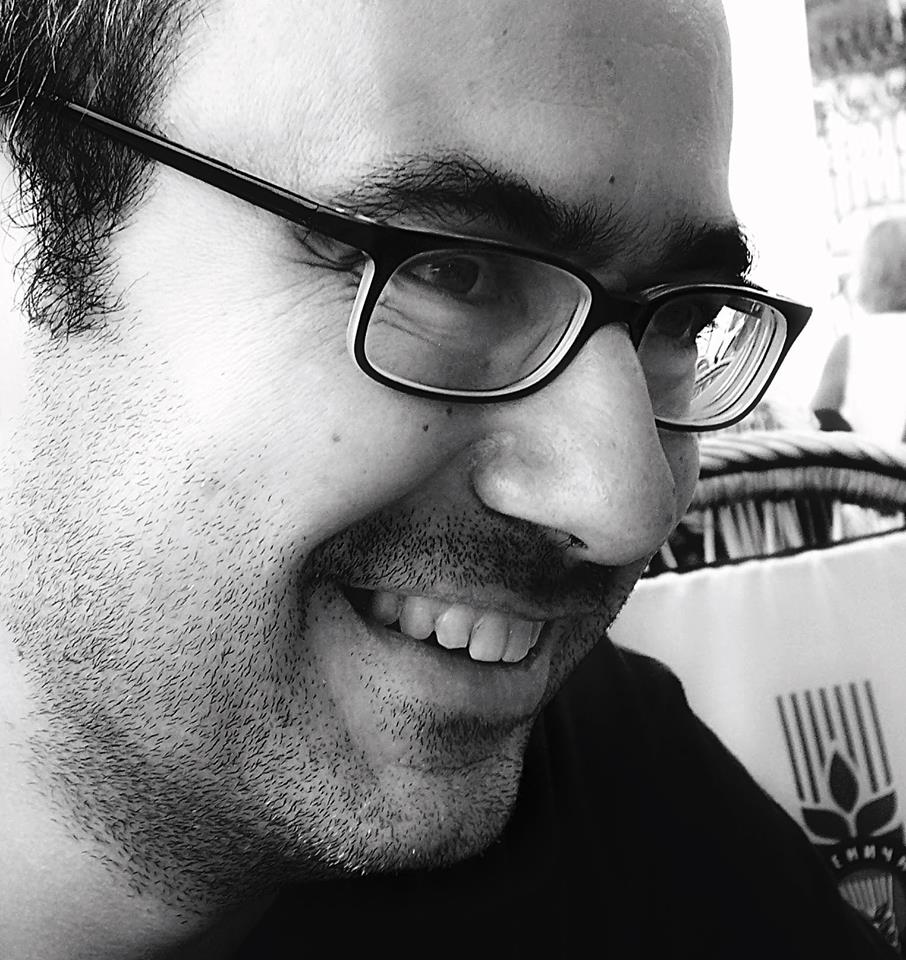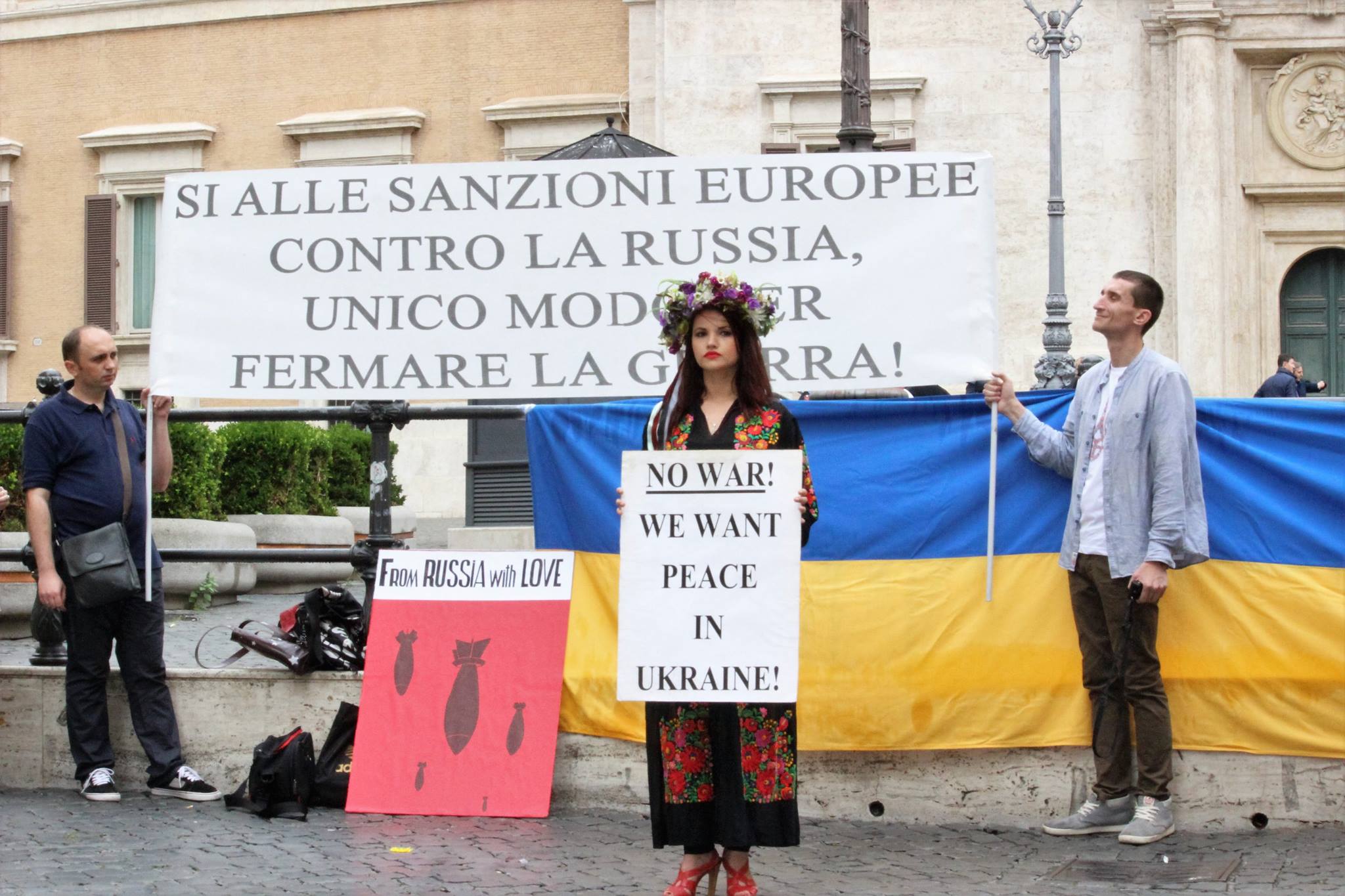When in 1991 Ukraine gained its independence, the new nation which “came as a surprise in the chancelleries, universities, and boardrooms of the West”[1], was more unexpected in Italy than elsewhere.
Italy, which had always had a close and privileged relationship with the Soviet Union, both in the economic and political spheres, struggled to come to terms with the idea of Ukraine as an independent state. Despite the fact that USSR was a federal union of 15 constituent republics in Eastern Europe and in Western and Northern Asia, Italian intelligentsia had often identified the Soviet Union with Russia. Italian politicians and journalists frequently used the Soviet Union and Russia as synonyms, generating misunderstanding and confusion amongst the general public.
Also, in the immediate years after the collapse of Soviet Union, Italy was keener to try to comprehend the new geopolitical scenario of another former socialist confederation. The war in Croatia, Serbia, Bosnia and Herzegovina, and later in Kosovo, on the territory of former Yugoslavia, was a conflict that had far more implications for Italy, because it bordered Italy.
The only exception to this general trend was the geopolitical magazine Limes, which from the early Nineties started publishing some articles about Ukraine. In the vast majority of these writings, Ukraine was portrayed as a sort of appendix of Russia that sooner or later would have joined or forced to join the Russian Federation or, in the worst-case scenario, split up into two halves. Apart from some qualified exceptions, the so-called Ukrainian experts writing in this magazine were often former correspondents from Moscow during Soviet times or even Kremlin consultants!
Their poor and biased analysis – sort of a copy-and- paste of articles coming mostly from Russian media and to a far lesser degree from Western sources – showed that Italy lacked experts on Ukraine, or most probably, the few Ukrainian scholars available were not invited to contribute.
A Polish thorn in Putin’s side
In November 2004 when the protests known as the Orange Revolution hit the road of downtown Kyiv, many Italians heard of a country called "Ukraine" for the first time.
Italian newspapers, radios channels, and TV news broadcast the events in Ukraine with their Moscow correspondents. The lack of knowledge about Ukrainian history and politics, along with the fact that the events were covered using information of Russian television and press agencies, led to a biased narration.
The situation was so embarrassing that the president of the Italian Association for Ukrainian studies sent an open letter to the directors of RAI TV, the Italian national public broadcasting company, asking for a more balanced coverage of what was happening in Ukraine. If RAI were not able to send a correspondent to Kyiv, at least they could also broadcast the information coming from TV and press agencies in Warsaw, which had correspondents in Ukraine, not only from Moscow! Nobody replied to this open letter published on the pages of Corriere della Sera, the most important Italian newspaper.
On 28 November 2004, in an article entitled Putin’s thorn, former Italian Ambassador in Moscow and historian Sergio Romano claimed that the EU had to reassure Putin that Ukraine would never be a Polish thorn in the side of the Russian state. Apparently, the democratic aspirations of Ukrainian people count for nothing compared to indisputable interests of Vladimir Putin.
In summer 2007, when President Viktor Yushchenko opposed Prime Minister Viktor Yanukovych in a harsh confrontation, many political commentators depicted the dramatic clash between the democratic forces and the post-communist ones in the Ukrainian society as a historic rivalry between Russia and Ukraine.
Ukrainian scholar Oksana Pachlovska pointed out that these misleading analyses were in line with Italian pro-Russian foreign policy:
The main problem was not the lack of honest journalists – for sure there were a few of them even in Italy! – but the ambiguity of the relationship between Italy and Russia. Italy appeared more interested in getting gas contracts with Gazprom and in pleasing Vladimir Putin, as Prime Minister Silvio Berlusconi did when he said Russia was one of the most democratic countries in the world.
How to dismember Ukraine
In order to understand the new climate that surrounded the Italian media when Euromaidan broke out in November 2013, we need to go back to 2008, a pivotal year for the geopolitics of the post-Soviet space.
At the core of this Russian project stands a particular idea of geopolitics. According to Kremlin consultant Aleksandr Dugin and Vladislav Surkov, geopolitics are a worldview of power, the science of power, and for the sake of power. Small states are subjects that do not deserve sovereignty. Sovereignty comes from strength, not from international law.
This unique concept of geopolitics, as the balance of power, was carried out in Italy also by Limes. Starting with issue 3 of 2008, Limes began to present its readers with maps of Ukraine dismembered in different areas, and articles entitled "How to dismember Ukraine and Georgia" under the title Project Russia.
For the first time, a well-known geopolitical magazine was questioning the legitimacy of Ukrainian borders borrowing Putin’s famous statement “Ukraine is not even a state.”

A year later, in 2009, Limes published a volume called Eurasia, our future? that aside from a couple of serious articles could be viewed as an apologetic manifesto of the Eurasian project. Amongst its contributors, we could spot the names of several Kremlin businessman and consultants such Fedor Lukyanov, Aleksandr Medvedev, Aleksey Miller, Vitaly Tretyakov, Mikhail Remizov.
The same year, Bocconi University Press published the Italian version of Edward Lucas' The New Cold War , a very interesting book that analyzed in depth the nature of Putin’s regime, arguing that the West still underestimated the danger posed by Moscow. The prophetic book, which among other things anticipated the war scenario in Ukraine, was accompanied by a foreword written by historian Sergio Romano that harshly criticized Lucas’s thesis.
Romano accused Lucas of being Russophobic and maintained his book was a deliberate provocation to humiliate Russia. Romano, on the contrary, praised Russia new course, stating that Putin’s men were clever and skilled because they came from an old Soviet institution: KGB[2].
In 2012, when Ukraine was about to co-host with Poland Euro 2012 football tournament, newspapers in Italy were more concerned with the killings of stray dogs to clean up streets than with the violation of human rights under Yanukovych presidency.
The Tymoshenko case, which got international press coverage, with some EU countries threatening to boycott Euro 2012 if she wasn’t released from jail, was either ignored or portrayed simply as a war between different oligarchs. Only a few independent journalists expressed their concerns about the downgrade of Ukrainian democracy, the majority of them did not care of the politically motivated convictions of Tymoshenko and former interior minister Yuriy Lutsenko.
Euromaidan

When in November 2013 the first wave of protests known as Euromaidan began in Kyiv, in Italy “the template” for a biased narration of the events had already been set. As the situation in Kyiv worsened, what was initially just a pro-Russian standpoint, partly due to poor knowledge of Ukrainian politics, turned into a Moscow-centric narration. None of the major TV channels and newspapers were immune to it. Even Corriere della Sera and Repubblica, the most important newspapers, along with balanced articles, published reportages and editorials that conveyed exactly the same rhetoric of Russian propagandists. The only positive exception was Turin's La Stampa, which provided its readers with balanced information and good analysis of what was happening in Ukraine.
Right wing Il Giornale, owned by tycoon Berlusconi, a close friend of Vladimir Putin, and the communist newspaper il Manifesto, despite being ideologically on opposite sides, described Ukrainian people demonstrating in Kyiv as right-wing extremists. They completely ignored the evidence that the majority of them were common citizens fighting peacefully – at least at the beginning of the rallies – against government corruption, abuse of power and violation of human rights.
When on 20 February 2014 Olesya Zhukovska, a volunteer medic, was hit by pro-government snipers around Kyiv's Independence Square, the Italian newspaper Il Manifesto titled on its front page “Ukraine: the nurse is alive. And she is a Nazi.”

The situation was slightly better on TV with some networks trying to do a decent job.
For instance RAI news 24, the first Italian all-news channel, sent a correspondent to Kyiv and hosted in its Rome studios some Ukrainian and Russian scholars to provide the audience with the larger picture. By the time Russia had taken control of Crimea with a fake and illegitimate referendum violating the Budapest Memorandum signed by US, UK, and Russia back in 1994, RAI News 24 had already changed its correspondent in Ukraine and its editorial line.
Aside from a few isolated voices, even well-known Italian historians and philosophers appeared to be in line with the Russian version of the facts, or simply not to care too much of the new Russian imperialism reshaping the borders of Europe for the first time since the end of World War II.
The philosopher and political expert Massimo Cacciari claimed Russians would stop after Crimea and that the concerns over the rest of Ukraine were unfounded. He also pointed out that Russia could not cease to be itself since it was an empire, not a European little entity like Italy[3].
The conflict in Donbas proved Cacciari was wrong. Russia was not satisfied with the takeover of Crimea.
A week before the start of the war in Donbas, historian and medievalist Franco Cardini was interviewed by Libero[4], a popular newspaper, went as far as to define Euromaidan like a Ukrainian-Polish coup d'etat orchestrated by the USA. According to Cardini the people in Maidan Nezalezhnosti were Nazis.
The Donbas war
When the conflict between the troops loyal to the new government in Kyiv and the Donbas separatists started out the vast majority of Italian media was already aligned with Moscow's narrative.
When Lucia Goracci, the Donbas correspondent of RAI news 24, was stopped in the center of Donetsk by a truck full of Kadyrovtsy who pointed their Kalashnikovs against her and her collaborators, she was forced to admit that Russia was sending mercenaries in Ukraine[5].
As stated before, even Italy's national public broadcasting company was not immune to this massive wave of Russian propaganda.
The reportage Fratello contro Fratello (Brother against Brother) broadcast on RAI 2 on 21 February 2015 was a clear example of Kremlin-orchestrated propaganda.
The video which had caused several protests by Ukrainian associations and institutions in Italy stressed the following concepts:
- The conflict in Ukraine is a civil war
- Kyiv is ruled by a nazi junta
- The Donbas fighters of LNR and DNR are anti-fascist patriots
- Sooner or later Donbas will be liberated and will be a part of Novorossiya, along with Crimea and south-eastern Ukraine.
What was happening in Italy looked literally like an Orwellian nightmare. Italy was the main playfield of Kremlin propaganda in Europe. Russian cultural associations were extremely active in spreading their disinformation using different channels. They arranged conferences, employed hundreds of trolls on Facebook, used testimonials like Nicolai Lilin, a Transdniester writer who was quite popular in Italy, portraying him as a Ukrainian expert.
A hilarious one was a conference about Ukraine”[6] entitled “Ukraine regional crisis in the global geopolitical context” co-hosted by Limes and the Russian Embassy in Italy that took place in Rome on 24 September 2015, where, despite the subject, no Ukrainian scholar was invited!

Giovanna Brogi, president of the Italian Association for Ukrainian Studies, sent a letter to Lucio Caracciolo, director of Limes, expressing her deep surprise about this initiative.
“I must note that among those invited to the debate there is no one who can somehow represent the main subject of the 'debate,' namely Ukraine. I have to express my deep surprise and real dismay at the servility of the Italian media, of which you are known to be one of the greatest representatives, against rampant Russian propaganda, of which the Embassy is just one of the many propulsion centers.”
Conclusions
Until the Orange Revolution, the perception of Ukraine as an independent state was rather vague in Italy. When in November 2004 protests broke out in Kyiv, many Italians heard of a country called Ukraine for the first time.
In 2008, the geopolitical magazine Limes began to present its readers with maps of Ukraine dismembered in different areas questioning the legitimacy of Ukrainian borders.
When in November 2013, Euromaidan protests began in Kyiv, “the template” for a Russian narration of the events had been already set in Italy.
Even Italy's national public broadcasting company and national newspapers were not immune to this massive wave of Russian propaganda.

[hr]
-
[1] Andrew Wilson, The Ukrainians. Unexpected Nation, 2002.
-
[2] “E’ questo il momento in cui la responsabilità della ricostruzione passa a un’altra istituzione sovietica, il KGB. I suoi uomini sono intelligenti e preparati, addestrati dalla loro esperienza. […] Sono quindi particolarmente adatti a restaurare la forza e l’unita dello stato”, pag. XIV. “Temo che dietro questa inutile provocazione si nasconda non tanto il desiderio di riformare la Russia quanto quella di indebolirla e umiliarla…”, pag XVI, Sergio Romano, Prefazione all’edizione italiana di Edward Lucas, La Nuova Guerra Fredda, 2009.
-
[3] http://ilpiccolo.gelocal.it/trieste/cronaca/2014/04/08/news/oggi-e-piu-difficile-nutrire-speranze-sulla-casa-comune-1.9008215
-
[4] "Usa, che flop in Ucraina. Hanno scatenato quattro nazistacci", 31st of March 2014 http://www.liberoquotidiano.it/news/esteri/11583308/Lo-storico-Franco-Cardini--.html
-
[5] http://www.rainews.it/dl/rainews/media/Donestk-Sequestrato-materiale-troupe-RaiNews24-Goracci-Erano-cattivi-del-solito-83bf217a-aa6b-4d50-93d0-0af4a6433ba1.html
-
[6] http://www.radioradicale.it/scheda/453838/la-crisi-regionale-ucraina-nel-contesto-geopolitico-globale





